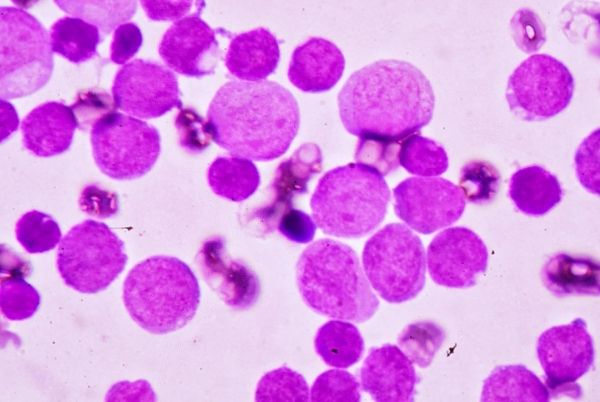Patients with acute myeloid leukemia (AML), the most common form of acute leukemia in adults, that has gone into remission following initial chemotherapy remain in remission longer and have improved overall survival when they are given a pill form of the cancer drug azacitidine as a maintenance treatment, according to a randomized, international phase 3 clinical trial for which Weill Cornell Medicine and NewYork-Presbyterian are trial sites. This is the first time a maintenance treatment for AML has shown such a strong benefit for patients, and it is already being adopted as part of standard care.
The results, which were published Dec. 24 in the New England Journal of Medicine, led to the U.S. Food and Drug Administration’s approval in September 2020 of oral azacitidine, known by the trade name Onureg, as a maintenance therapy for AML.
“At last, we have an effective treatment that can be given in the post-remission setting to help keep AML patients in remission and improve their survival,” said senior author Dr. Gail Roboz, professor of medicine in the Division of Hematology and Medical Oncology and director of the Clinical and Translational Leukemia Program at Weill Cornell Medicine, a hematologist/oncologist at NewYork-Presbyterian/Weill Cornell Medical Center and principal investigator of the clinical trial at Weill Cornell Medicine and NewYork-Presbyterian. “We are especially gratified that the drug is very well-tolerated, so that quality of life is not compromised.”
Read more at: Weill Cornell Medicine
Blood smear under microscopy showing adult acute myeloid leukemia. (Photo Credit: WCM)


